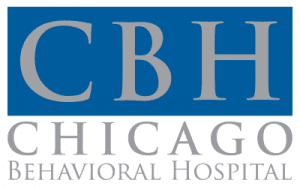Chicago Behavioral Hospital offers FREE Assessments 24/7, call us at
Psychological Trauma
Understanding, Treatment & Help
Trauma can happen to anyone. A tragic accident, serious illness, or abuse can lead to feelings of fear and anxiety. Dealing with trauma can be especially difficult for children, who may not always be able to articulate what they’re feeling. Here are some tips to help you recognize whether someone is struggling with psychological trauma.
Emotional Symptoms of Psychological Trauma
People who have faced psychological trauma often experience feelings such as shock, denial, fear, and anger. Those who have witnessed or experienced a traumatic event may feel as though they are constantly on edge, becoming easily startled and hyper-vigilant. However, sometimes the trauma is so overwhelming that a person is left feeling emotionally numb. Irritability, sadness, mood swings, feelings of helplessness, guilt, shame, and self-blame are also common.
Cognitive Symptoms of Emotional Trauma
Experiencing a serious illness, relationship breakup, or other life-changing events may lead to cognitive symptoms such as confusion and difficulty concentrating and connecting with reality. Some trauma survivors experience intrusive thoughts, nightmares, and flashbacks related to the event, while others have difficulty remembering what happened.
Physical Symptoms of Trauma
Psychological trauma often leads to physical complaints such as problems with eating and difficulty falling or staying asleep. People who experience childhood trauma may also have low energy levels and unexplained aches and pains or other physical sensations.
Behavioral Symptoms Related to Shock Trauma
After going through shock trauma, adults are likely to withdraw from family, friends, and activities they once enjoyed or to avoid people and places that remind them of the traumatic event. Compulsions and impulsive or self-destructive behaviors, such as drug and alcohol use and eating disorders, are common, too. People who are struggling to process trauma may become hostile and argumentative, or you may notice a sudden change in their peer group.
Factors that Contribute to Childhood Trauma
For some people, certain factors increase the risk of trauma, which can be caused by a one-time event or an ongoing pattern of behavior. Abuse– physical, emotional, and sexual– and neglect are some of the most common causes of childhood trauma. Domestic or neighborhood violence, bullying, or the death of a loved one may also lead to feelings of fear and helplessness.
Chicago Behavioral Hospital offers comprehensive, individualized trauma treatment. A patient’s therapy plan may include inpatient services, partial hospitalization, and/or intensive outpatient emotional trauma trauma counseling.


